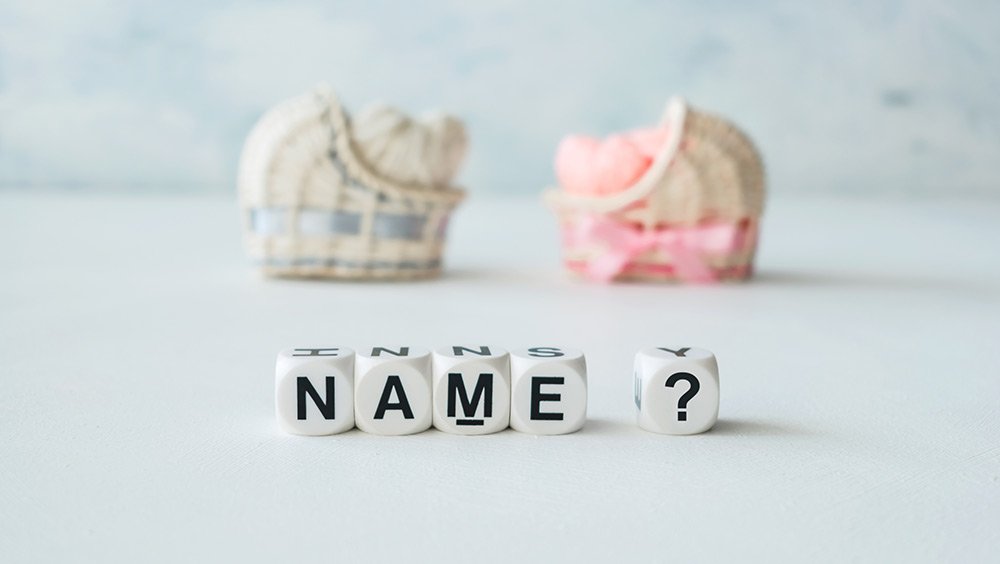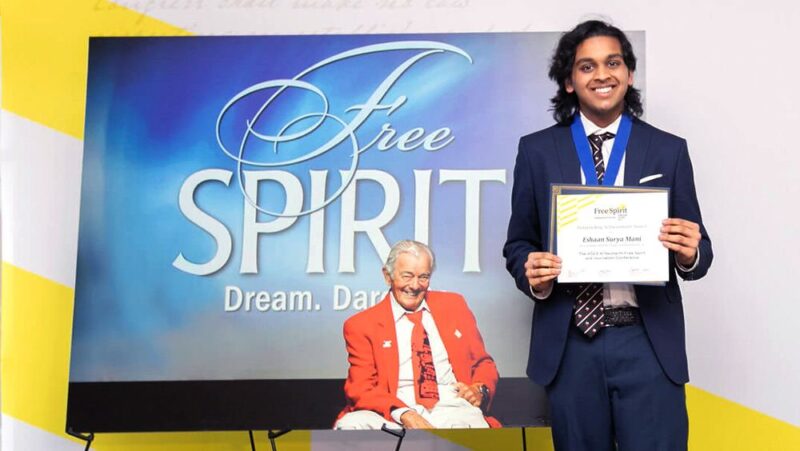Can a Person’s Name Be Illegal? The How (and Why) Behind Banned Names

What’s in a name?
A lot, really, including your identity, family history, and cultural or religious background.
And possibly the free expression and First Amendment rights of you or your parents.
Let’s unpack what it means to name someone or change your name, how it relates to your freedoms, and whether banning names in the United States violates the First Amendment. Here's everything to know about banned names in the U.S.
Can names be banned in the US under the First Amendment?
The First Amendment protects the freedoms of religion, speech, press, assembly and petition from government interference, with some narrow exceptions.
Naming a child or an adult legally changing their name isn’t usually thought of as speech. But names are inherently expressive – just ask anyone who has stressed over naming a child (or themselves).
Many names are also tied to religious traditions and texts, meaning an attempt to ban a name that is tied to a religious ideology could be challenged on First Amendment religious liberty grounds. That happened in Tennessee in 2013, when a magistrate judge told Jawaan McCullough and Jaleesa Martin that they would have to change their baby’s name from Messiah to Martin because “Messiah is a title that is held only by Jesus Christ,” and the name places an “undue burden” on the child that he cannot fulfill. Judge Lu Ann Ballew also said the name would offend the large Christian population of Cooke County, Tennessee.
The parents successfully challenged this ruling. Judge Ballew was removed from her position as a magistrate and censured by the Tennessee Board of Judicial Conduct for substituting her own religious beliefs in place of the law.
So, if a person’s name can be an act of expression (speech) or reflect a faith tradition (religion), how can government officials ban names under the First Amendment, which protects free speech and religion?
The answer lies in several places.
1. The point of a name
To most people, names are an identity. To the government, it’s basically a filing system. Names are a way of organizing information and retrieving that information when necessary. They are also attached to unique identifiers in the U.S. such as federal Social Security numbers or state identification numbers on driver’s licenses. A name is essentially a way to attach these numbers to a person for legal identification. So, avoiding names that could complicate that process is allowed.
For example: A first name of numbers and Roman numerals could be rejected because computer systems wouldn’t know how to handle numbers in a database that looks for letters in a name field.
2. Who has the authority to legally record names?
The naming process in the U.S. begins at the local and state levels. If a child is born in a hospital, staff will ask to record a name on an official birth certificate. If you are seeking to name a child born at home, you’ll have to record that information with the relevant county and state authorities. Legally changing your name requires petitioning a court for approval. State officials can reject legal names for reasons related to the ability to file in databases, being profane or sexually suggestive, or for broad public interest to avoid confusion.
For example: An Ohio judge rejected a man’s name-change request to Santa Robert Claus because the public has a right to Santa’s identity beyond one person.
However, David Lynn Porter of Utah successfully changed his name to Santa Claus. Initially, a trial court refused the name change because it might cause confusion and misunderstanding and because people who might have reason to sue him wouldn’t do it because they wouldn’t want to sue “Santa Claus.” Porter even offered to change his name to Kris Kringle, but the court still said no. Eventually, the Utah Supreme Court granted the name change because there was no evidence that people would be confused or be deterred from suing Santa Claus.
This brings up an important point: Whether a name is banned in the U.S. might depend on what state you’re in since there is no official federal government list of all approved and banned names.
3. First Amendment exceptions
There are some exceptions to First Amendment freedoms related to obscenity, defamation, threats and several other categories. These exceptions mean the government can limit or punish speech if what you say or do falls in an unprotected category. Apply this to names and there is cause for government officials to reject a name based on it not being protected speech. For example, a parent trying to name their child JonSmithIsAMurderer might be forced to change that name if a real Jon Smith challenged the name and was able to show that the name referred to him and met the other elements of defamation.
A state can also justify rejecting a name if it can prove there is a compelling interest for the decision and the decision was viewpoint neutral.
A state official could reject a profane name or a name that can be proven to subject a child to undue embarrassment or harassment. A state could also reject a name because it would be confusing to the public. And some states require that every person have two names.
In any of these situations, the state bears the burden of showing that the rejection is necessary and viewpoint-neutral. Any indication that the name was rejected simply because it is generally offensive or that the state simply doesn’t like it would violate the First Amendment.
4. The difference between legal names and nicknames
Legal names are just that: what is official in documents to identify you to the government. Banning names is mostly a practice of orderly record keeping and eliminating confusion for people or the systems used to access information. This differs from nicknames or uses of names that aren’t official, such as a writer’s pen name or a performer’s stage name.
For example: Many families use nicknames for kids that last a lifetime. There is no First Amendment free speech issue involved since there is no government official saying you can’t call a kid “Skippy” at home. The kid may not like the nickname, but that’s a family matter, not a First Amendment one. Similarly, if as an adult you prefer that people call you by a different name than your legal name, that’s an issue between you and others, not one for the government to decide.
What are some banned names in the US?
Compared to other countries, the U.S. doesn’t regulate names as strictly as others. Since it’s largely a state-by-state issue, there are not as many banned names compared to countries like France, Germany, Iceland or Japan.
Some examples of banned names in the U.S. — that is, names rejected by officials — include:
III (Roman numerals pronounced “three”)
In 1984, a California court said Thomas Boyd Ritchie III changing his name simply to “III” would be confusing since it was a symbol as much as a number and not a legitimate name.
Misteri (N-word)
A California appeals court in 1992 rejected this name — which explicitly spelled out the racial slur — on the grounds it constitutes fighting words.
1069
A North Dakota man named Michael Herbert Dengler, who was adopted, wanted to change his name to these four numbers, which held philosophical and personal significance for him. A state court rejected his name-change request in 1976, saying numbers can’t be names due to potential confusion. He then moved to Minnesota, and a court there ruled against him. The Minnesota court did say he could try to use the alphabetic spelling One Zero Six Nine as a legal name.
Similarly, Elon Musk had to change the name of his child from X Æ A-12 to X Æ A-Xii because California law says that only the 26 letters of the alphabet can be included in names.
Jesus Christ
While Jesus is a common first name in Spanish, its use as an English name is less common. Various state officials and judges have rejected the full "Jesus Christ" as it relates directly to a historical/religious figure and could cause confusion and claims of blasphemy.
Mary R.
A Pennsylvania woman named Mary Ravitch did not want to keep her ex-husband’s last name after their divorce. She also didn’t want to revert to her maiden name. Instead, she thought “R” was simple. The state superior court didn’t agree, as shortening to a single letter could be confusing. It agreed with a lower court that “chaos” could ensue if people “were to utilize names which consisted of initials, numbers, symbols, etc. in their general day-to-day affairs.”
@ (pronounced “at”)
The symbol used in email addresses burst into the culture in the early 1990s, famously confusing Katie Couric and Bryant Gumbel in a “Today Show” segment. Now, it has everyday use in slang, such as “don’t @ me,” meaning don’t send me an angry message on a social platform. Officials and courts have rejected many requests for "@" on the grounds it’s confusing, it’s a symbol and it would not work in computer databases.
Banned names and the First Amendment
There is a longstanding and often-repeated story that some parents have tried to name a child "Shithead." In the story, it’s supposedly drawn from an Arabic or Indian language tradition and pronounced “Sha-theed” or a similar way. This seems to fall more in the category of urban legend that gets passed through generations of retelling. Comedian Lewis Black even included it on one of his stand-up specials.
Whether that or other names have been rejected underlies the push-and-pull of the First Amendment. We have free speech to say what we feel and want to express. But even something as personal as a name isn’t exclusively our own to decide, and like all speech, there are some limits to how free it is.
Scott A. Leadingham is a Freedom Forum staff writer.
What Is Libel? A First Amendment Analysis
What a Chronic Aspirer Learned as a Free Spirit Scholar
Related Content
Religion. Speech. Press. Assembly. Petition.
Learn about the First Amendment.

